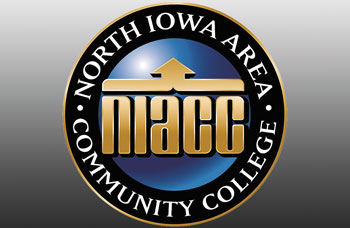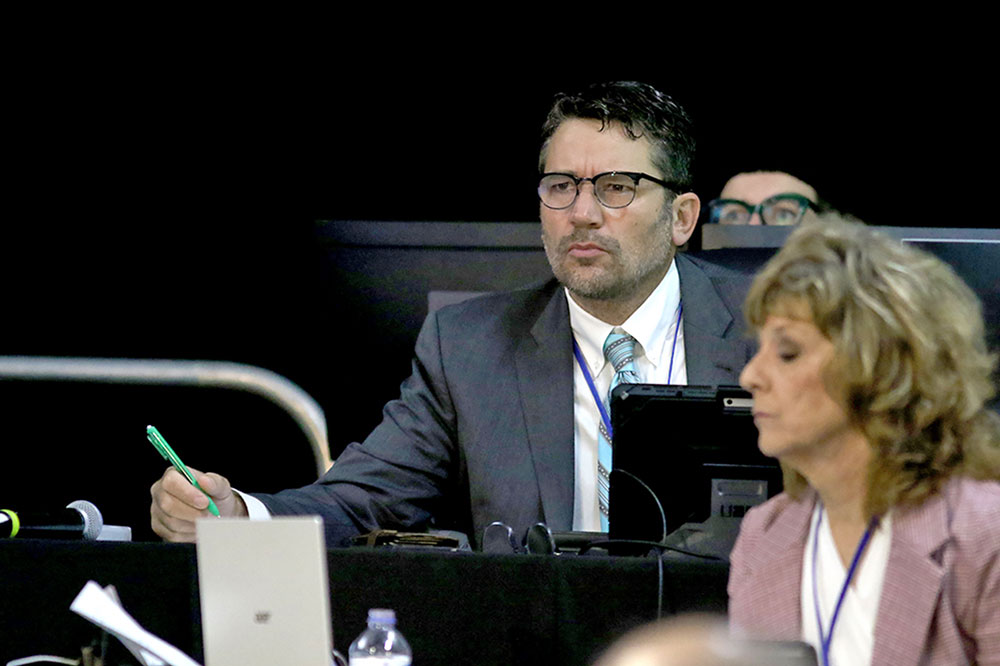Lawmakers say session lagging behind in 2020

By Bob Fenske, editor@nhtrib.com
The two men who represent Floyd County in the Iowa Legislature don’t have a lot of confidence that lawmakers will finish their work on time in 2020.
Both state Sen. Waylon Brown, R-St. Ansgar, and state Rep. Todd Prichard, D-Charles City, told those who attended a Chickasaw County Farm Bureau legislative forum Saturday that the chances the Legislature will wrap up its session by April 21 are slim.
“How does working into June sound, Todd? Seriously, we’re behind,” Brown said, and Prichard held out hope that the Legislature could be done with its work by May.
The reason for the “overtime” session?
Gov. Kim Reynolds’ Invest in Iowa initiative that would raise the state’s sales tax by a penny and use that money to cut income taxes, create a funding source for the state’s mental health system, reduce property taxes and fund the Natural Resources and Outdoor Trust.
“Basically in the Senate, we’re working on two budgets – one with the Invest in Iowa; one without,” Brown said. “I have to be honest, I’m not sure if we can do the Invest in Iowa in just one year. We’re working on it, but this is a major, major initiative.”
Prichard agreed.
“One thing you never say is never,” he said. “But if you look at the gas tax a few years ago, we worked on that for three years. … I think the concern I have is that the state hasn’t always proven to be a great partner when it comes to taking over funding. We have to make sure we don’t make the problem — especially with mental health — worse.”
The two lawmakers did say they were happy that the two chambers — both led by Republicans — agreed on a 2.3 percent increase to state supplemental aid (SSA), which is the amount a school district can spend on each student, although Prichard pointed out that he didn’t think it was a large enough increase.
“I just don’t think it’s enough to keep up with inflation, especially with the small increases we’ve had in recent years,” he said. “But at least schools know what they’re dealing with.”
They also touched on a number of other issues, including:
• Funding emergency medical services (EMS) — A bill is in the Legislature that would allow county supervisors to approve levying taxes for ambulance service without requiring a vote by county residents.
Fredericksburg resident Doreen Cook said she was concerned that it would take away “local control” for cities, pointing out that “we’re 14 miles from New Hampton and 14 miles from Sumner, and shouldn’t we, as a city, be able to decide where our money should go for EMS?”
“Look, this got the conversation started, and we needed that,” Brown said. “There are a lot of issues with EMS that we need to be talking about and fixing.”
• Occupational licensing — Both lawmakers said they agreed that there needs to be changes in the state’s licensing procedure. Brown said Iowa has the second-most stringent licensing rules in the country.
“The problem is as we try to get people to move to Iowa, they could have 12 years of experience in heating and cooling, but South Dakota doesn’t have the same licensing path we do, so it’s cost-prohibitive for them to come here,” Brown said.
Prichard said he agreed that there are areas that need to be looked at, but he also cautioned that “we also want to make sure — in areas like medicine, the law — that people are qualified. … But I agree, if you make it tough on the little guy, all that’s left are the big companies and that’s not right.”
• Bottle and can redemption — Brown said before the session he would have bet that some kind of changes would be made to Iowa’s bottle law.
But now, he said, “I don’t know if there is a live round left in the chamber. Obviously, something needs to be done because we have so many places not taking them.”
Prichard said the challenge is helping redemption centers stay in business because, “let’s face it, do you want that filth — it’s not like we wash out our cans and bottles, or most of us don’t — in places where they’re processing food, selling food?”
“There’s an answer out there,” he said. “We just haven’t found it.”








Social Share